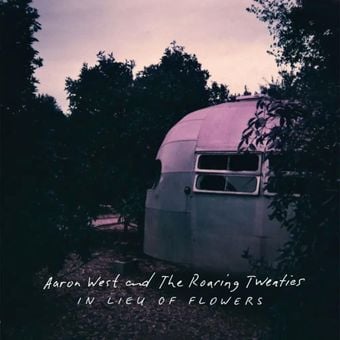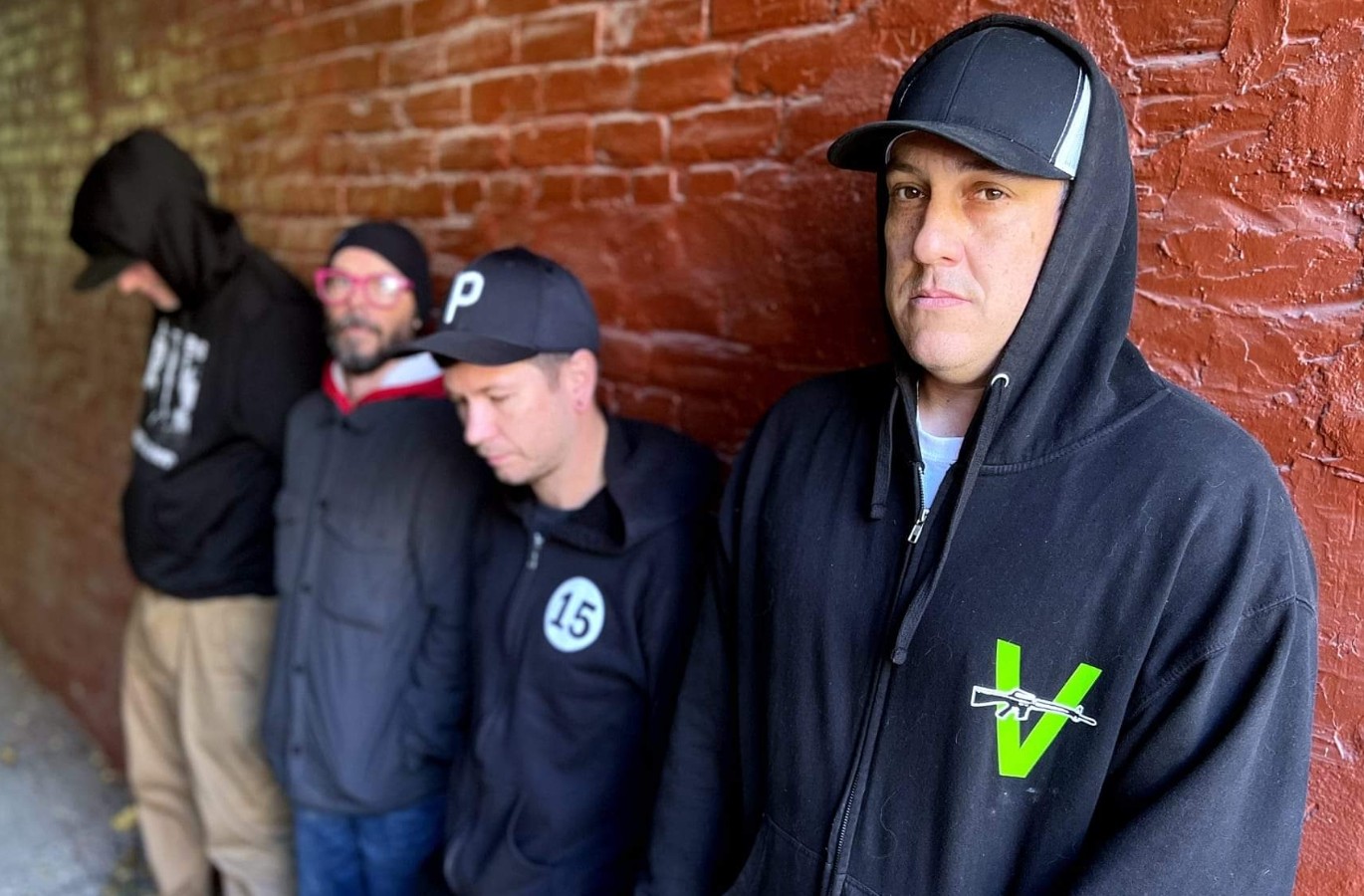The Wonder Years frontman Dan Campbell, has been hard at work; in 2014, he created a well-thought-out alter ego known as Aaron West, best defined as “a character study conducted through music” – basically a fictitious telling about his alter ego’s life. The first album, We Don’t Have Each Other, told the story about Aaron West’s worst year; in 2019, Aaron West and the Roaring Twenties released the follow-up, Routine Maintenance, which according to Campbell, gave the fictitious alter ego a redemption arc and focused on him learning to deal with tragedy instead of going down the self-destructive route. Five years later, the Americana folk project released a new album, In Lieu of Flowers, the third and final album for Aaron West and the Roaring Twenties.
In Lieu of Flowers kicks off with “Smoking Rooms,” a slow acoustic song with voices from a crowded room. Towards the end of the song, horns, guitars, and the beating of drums appear to underline what’s in store for the rest of In Lieu of Flowers. The acoustic guitar is placed in a corner for the following song, “Roman Candles,” which tackles the effects of COVID-19; “But Mom works at the hospital / Every shift is a curse / She’s never seen people this sick before / She says it’s only getting worse”. While we’re two songs into the album, you can already hear it becoming an emotional one because the relatable feeling of wanting to sleep through the horrible pandemic and one’s life standing still throughout it is very evident in the song.
Jumping to “Alone At St. Luke’s” and “Spitting In The Wind”, take it upon themselves to pick the tempo of the songs again; with “Alone At St. Luke’s”, the lyrics are cheeky, (“Fuck The Tories!”) and begin to tackle the narrator’s downward spiral with alcohol again. The pop-punk anthem “Spitting In The Wind” sees West drinking more frequently and tells the story of how it is affecting his relationships around him. “Runnin’ Out Of Excuses” starts with a gentle piano key while West’s vocals are softer. At the same time, we are taken on a journey of entering rehab after his relapse with alcohol, and throughout the song’s progress, he admits that while he has stuff to do, he is staying to make himself better.
The title track and penultimate song, which was also the first single from the album, are relatively upbeat and feature a tremendous horn section. The song serves as an apology to those his drinking affected. You want to sing along with the chorus; the glimmer of hope is there, and not everything is as bleak as you thought. The closing song, “Dead Leaves”, is similar to the opening song—a slow song—but unlike the first song, which was filled with the angst of hopelessness in the air, we hold on to the feeling of hope that came to the surface during “In Lieu of Flowers”. “Up the block when I come to I see our name on the marquee / And smile cause I love you and I know that you found what you need”, finally finding peace.
The ability to build tension in songs, with the same amount of passion from start to finish, has been one of the most profound abilities that Dan Campbell has done in his decades-long career. While not comparing this to any of The Wonder Years albums, Campbell has always been great at writing lyrics for the listeners to interpret for themselves and sometimes even be able to build the visualization in their heads. However, being able to capture the same level of emotion for a fictitious alter ego really gives the listeners an insight into his creative process.
And the emotional impact of feeling lost during the pandemic, letting yourself fall back into the self-destructive behavior that we all heard him work hard to get out of on Routine Maintenance, can have listeners cheering for a happier ending than how the bleak portrayal of the first half of the album seems to be heading. And do we get it? I don’t know, but we get something: the self-realization of how destructive his drinking got, how it affected his surroundings, and checking himself into rehab, all while the undertone of “I can leave whenever, but what does that help me?” lingers in the air during “Runnin’ Out Of Excuses”. And to the end, where the narrator, Aaron West, sees his ex-wife finally having the life he couldn’t give her and being at peace with it, does maybe explore the theme of forgiving oneself instead of him jumping into the gig and getting wasted. While it’s the final album, those last lines of “Dead Leaves”, “The future’s a rhetorical question / So I open the door, and I walk in,” leaves it up for interpretation. I would like to think that while life has given one hardship, the future is untold.
I loved the album. The way In Lieu of Flowers weaves storytelling and music together is one of a kind. From the gut-wrenching moments of listening to Aaron West fall back into a downward spiral, to the moment of reassurance of him realizing that it can’t go on and getting help, had me on an emotional rollercoaster. It can be rare to find an album that has the intensity of pulling you in with the ups and downs. The way the album touches on the different genres, blending with Americana, country, pop-punk, and the modern-day emo that reminds one of the likes of Hot Mulligan and Spanish Love Songs. The album isn’t just music; it’s a story.




